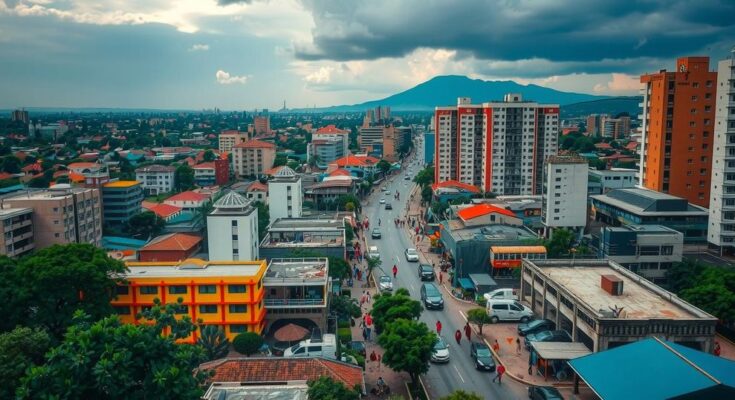Lynda Mwakisha from Nairobi asserts that Africa, heavily affected by climate change, deserves reparations from Western nations for food security and health challenges. As early voting begins in Washington, D.C., this subject gains urgency in international dialogue.
Lynda Mwakisha, currently residing in Nairobi, Kenya, emphasizes the dire consequences of climate change on the African continent, attributing a significant portion of the responsibility to Western nations, particularly the United States. She articulates a pressing need for reparations aimed at improving food security and health, which have suffered tremendously due to the adverse effects of climate change over recent decades. Mwakisha’s remarks highlight the growing discourse surrounding the responsibilities of wealthy nations in addressing climate-related challenges faced by poorer regions, underscoring an urgent call for accountability and support in restoring ecological balance and ensuring equitable development. In a similar vein, Cecil Mlambo from Johannesburg, South Africa, will also share insights pertaining to this subject, continuing this critical conversation. As the global community grapples with escalating climate issues, the focus on reparations and support for vulnerable nations becomes increasingly pertinent, particularly in forums aimed at mobilizing international aid and collaboration. Additionally, as important elections approach in Washington, D.C., early voting has commenced, drawing the attention of citizens who are keen to influence policymaking that could potentially impact global climate efforts.
The issue of climate change disproportionately affects Africa, a region that has been significantly impacted by environmental degradation, food insecurity, and health crises exacerbated by climate-related phenomena. This situation serves as a backdrop for calls from various African leaders and activists for reparations from industrialized nations, who are viewed as the primary contributors to the ongoing climate crisis. These reparations are proposed to support African nations in mitigating the effects of climate change and addressing the socio-economic challenges that have arisen as a consequence.
In summary, Lynda Mwakisha articulates the pressing need for reparations from Western nations, particularly the United States, to aid African countries severely affected by climate change. Her call reflects a broader demand for acknowledgments of responsibility from developed nations and the necessity of active support in addressing the consequences of global environmental shifts. As Washington D.C. heads towards elections, the relationship between policy, climate change, and reparative justice remains a critical topic of discussion.
Original Source: www.voaafrica.com




